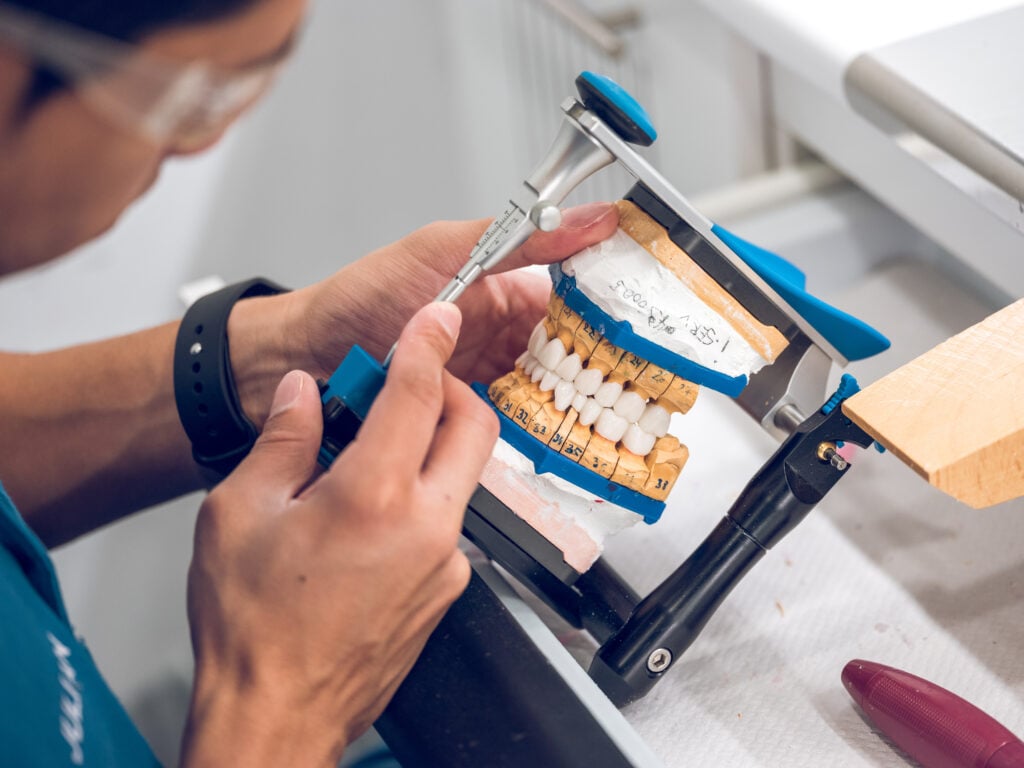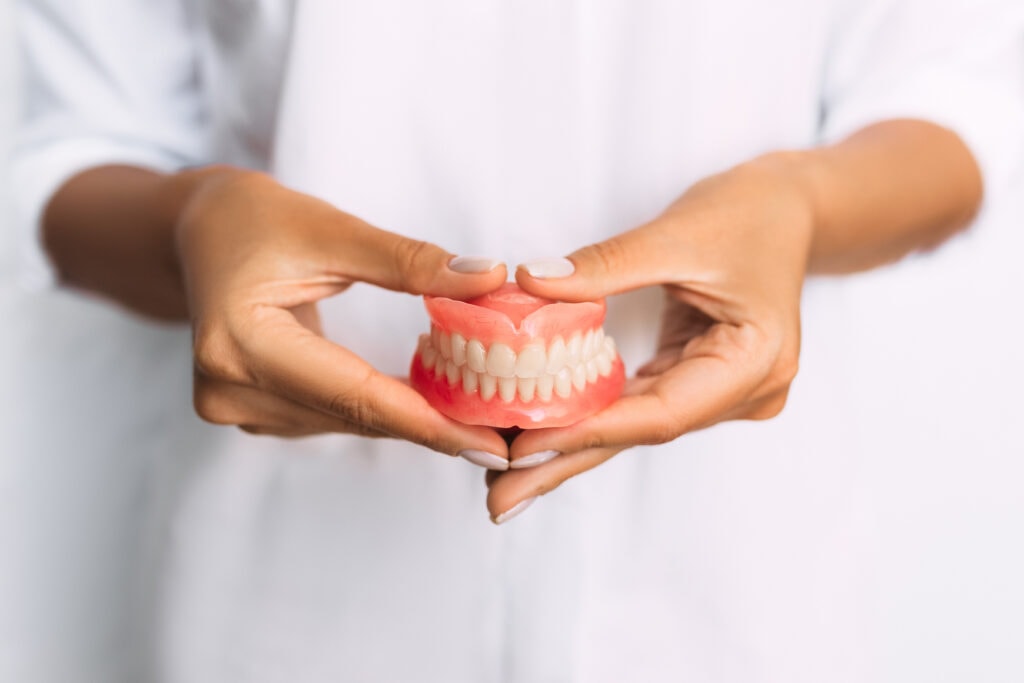
Dentures are an alternative to natural teeth, which can be lost or damaged due to various reasons. They are used to replace missing teeth and help chew food. Nowadays, dentures come in different types made up of different materials such as metal, acrylic, composite of a porcelain and metal mix, and even plastic.
Each type has its advantages and disadvantages so before you order your dentures you must know all about all the different types!
What are dentures?
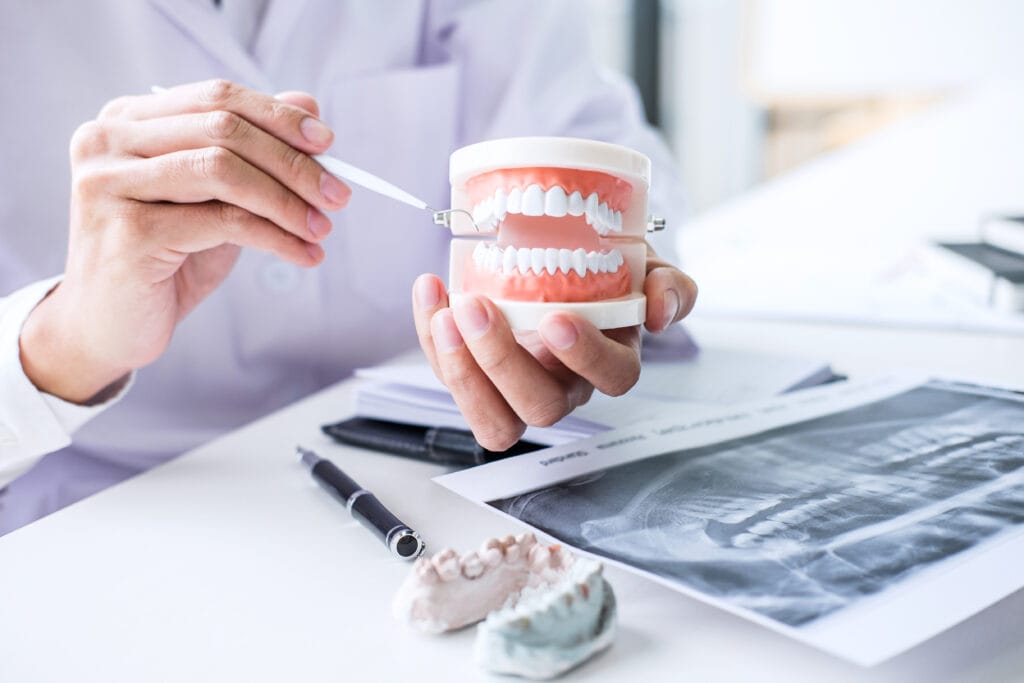
Dentures are removable prosthetic devices that replace teeth. It can be made of acrylic, metal, or porcelain. Dentures can be custom-made or pre-made and come in a variety of shapes and sizes.
Dentures are held in place by gum tissue and soft tissue around the mouth; they are not attached to your gums with brackets like regular false teeth, also called partial dentures.
How do dentures work?
Dentures are removable teeth that replace natural ones. Dentures are fitted to your mouth by an oral surgeon or dentist. They’re held in place by suction if you have removable dentures or adhesion if you have fixed dental implants. Dentures can be removed for cleaning, but it’s not necessary to remove them every day if you don’t want to. You can just brush them like normal!
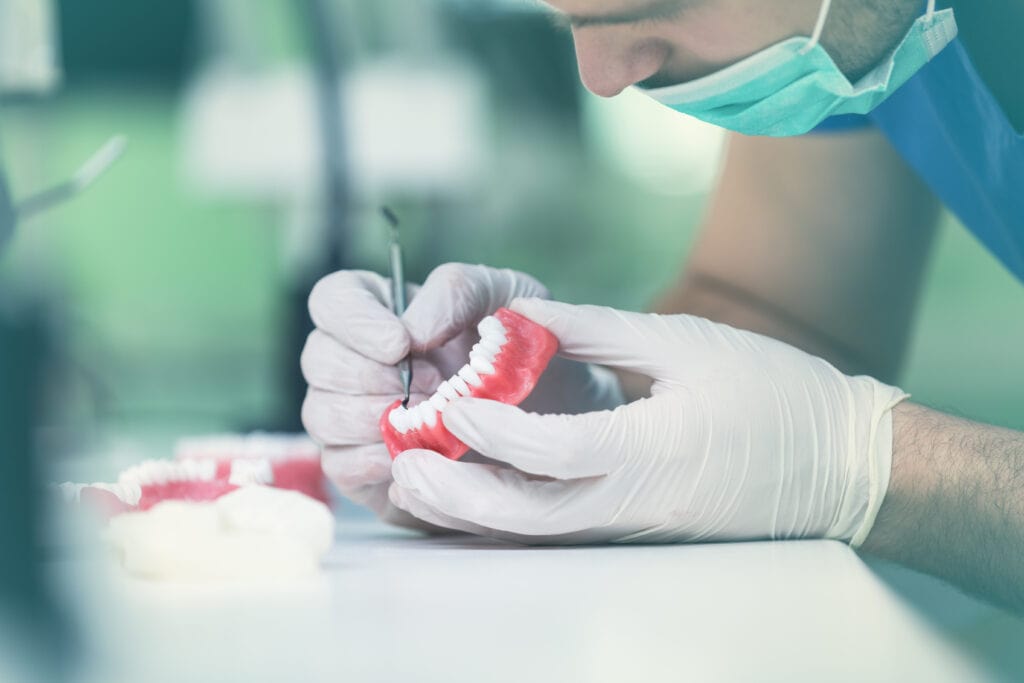
How long do dentures last?
Dentures can last for many years, but it depends on the type of denture you have and how well you take care of it. If you have a well-made set of partial or full dentures that are maintained properly, they could last decades before needing replacement.
If a few but not all of your teeth are in poor health or have been damaged by disease or trauma and need to be removed, such as with extractions, then permanent bridges or implants may be your first option before getting dentures made.
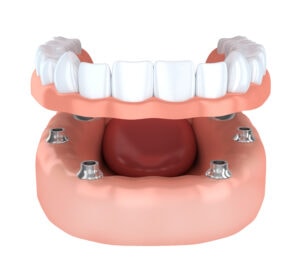
The different types of dentures
As stated, dentures can be made from any number of things. Some of the different types are listed below.
- Metal-based dentures are the most common type of denture. They consist of a metal framework that is shaped to fit your mouth and attached to your jawbone. They have acrylic or plastic teeth mounted on the framework.
- Acrylic-based dentures are made from an acrylic resin material that can be molded into a variety of shapes and sizes by your dentist. This amounts to an incredibly natural look for teeth that can closely match the size and shape of your original teeth. The acrylic is then bonded with a thin layer of gold foil over its surface area, creating a shiny finish similar to porcelain but without its costliness or fragile nature of acrylic.
- Composite-base or porcelain-fused-to-metal (PFM) types are also made from two materials. These are an elastic base material known as ‘resin composite,’ which acts as the foundation for attaching teeth and other components. It also holds one or more layers made from porcelain fused onto this base layer. This is done using heat and pressure at extremely high temperatures to permanently bond them together – making these types very durable!
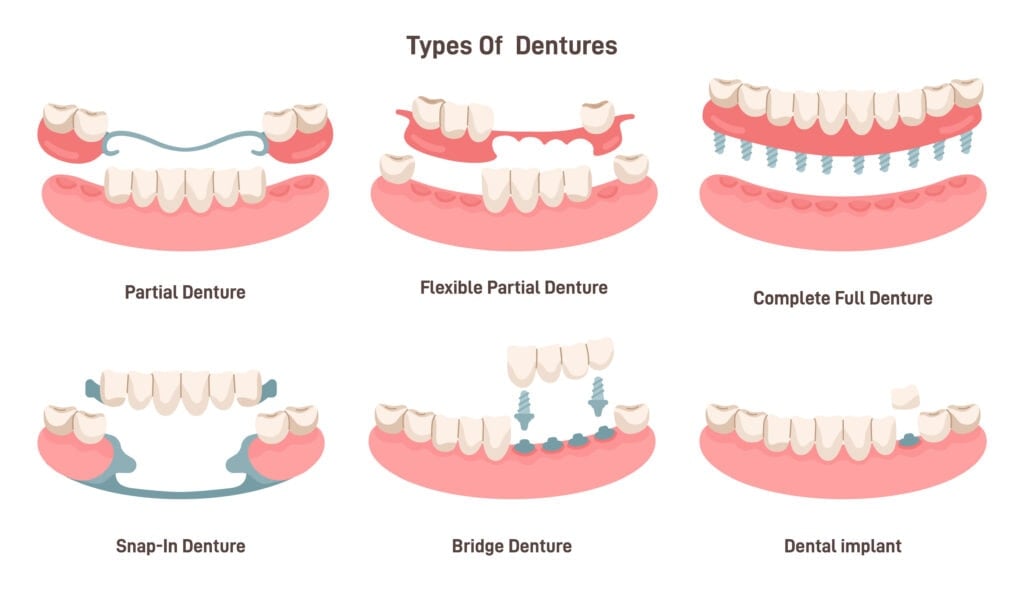
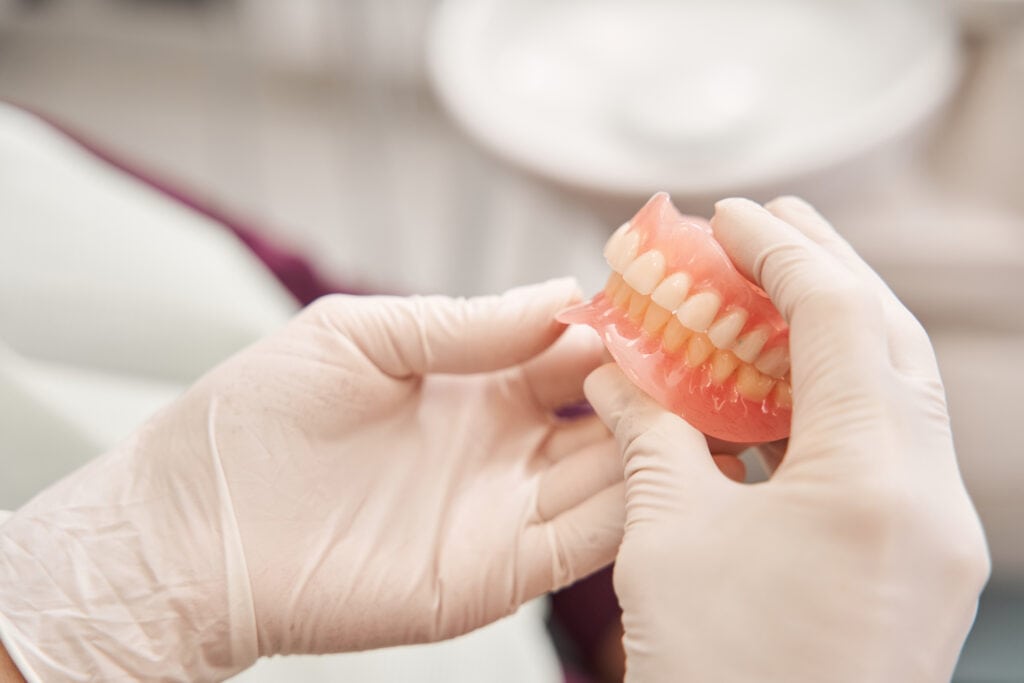
Materials used to make dentures
Each of the materials used to make dentures has its advantages and disadvantages.
Meta-Based Dentures
Metal-based dentures are made from precious metals such as gold or platinum. These types of prosthetics may be more expensive but they’re also more durable than other options. They are also the most uncomfortable because they weigh more than other options.
If you do need a metal-based denture, it’s best to choose one that has been made with titanium or cobalt chromium alloy rather than stainless steel. These materials are stronger than stainless steel but much lighter in weight–so they’ll feel more like your natural teeth do when you bite down on something solid.
Acrylic-base dentures
Acrylic-based dentures are what most people think of when they imagine a traditional set of false teeth. They’re usually made out of plastic that’s molded to fit over your gums and jawbone to hold your bite together while you chew food properly again.
They are more flexible than metal dentures so they are easier to wear. Acrylic is stronger than tooth enamel, so it can withstand chewing forces without breaking or cracking.
The main disadvantage of acrylic dentures is that they’re not as natural looking as other materials like metal or porcelain. If this bothers you personally–or if others notice your new smile isn’t quite right–you might want to consider getting all-porcelain instead of acrylic.
While acrylic dentures are cheaper than metal-based dentures, one downside is that this type of material doesn’t last too long. You’ll need replacement sets every few years due to wear and tear on the teeth themselves but it’s still relatively inexpensive even with replacement costs compared to other options available today!
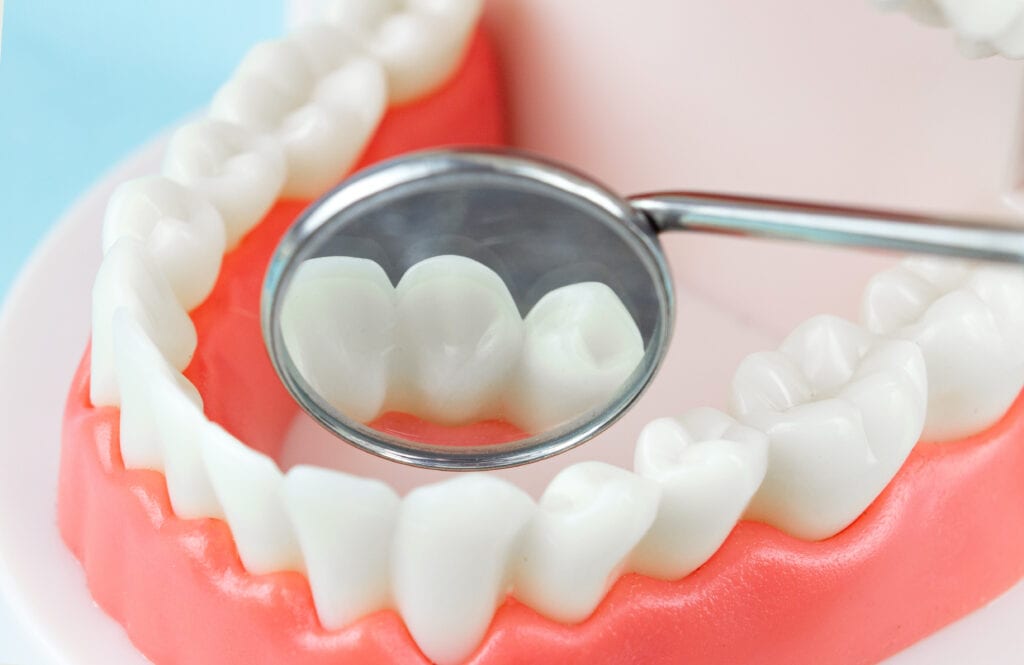
Composite-base or porcelain-fused-to-metal (PFM) dentures
Composite-based or porcelain fused with metal (PFM) dentures is another option for patients who want something stronger than an acrylic model but don’t have enough money for all-porcelain models.
Composite-base dentures are made of porcelain fused to metal and may require a dental laboratory to make them, so they’re not as easy to replace as traditional acrylics or partials.
These are the most durable type of denture and can last up to 10 years with proper care, but they’re also more expensive than other types of removable prostheses.
However, composite bases can be repaired if they break or become damaged. You need new pieces made at your dentist’s office or by an experienced technician in his/her lab.
These prosthetics generally last longer than other types because they’re designed with fewer gaps between the gum line and bite surface. However, the gaps that exist may still cause problems like tooth decay if you don’t take good care of them by brushing and flossing regularly!
Repairing and replacing your dentures
Repairing or replacing dentures isn’t complicated. If you have lost one of the pieces, it is possible to get that piece replaced with the same material as your existing set of teeth.
The dentist will use the same process to make sure that they fit perfectly in place and look natural again. If there is damage to one or more teeth on either side of a partial plate, then it may need to be replaced entirely with a new set of artificial teeth. These will match exactly what was there before so that no one will notice anything different about you when talking face-to-face with friends or family members.
If you need a new set of teeth, there are many options available to you!
Dentures are a great option for replacing missing teeth. They can be made and customized to fit your mouth. Dentures can be cleaned and maintained just like regular teeth by brushing them with a toothbrush or using special cleaning solutions such as denture cleaner that you can buy at the pharmacy.
If you need a new set of teeth, there are many options available!
Conclusion
The most important thing to remember is that dentures don’t replace regular dental visits and they do need to be replaced. If you have questions, ask your dentist! They will be able to help you find the right type of denture for your needs or let you know if there’s another option available.
